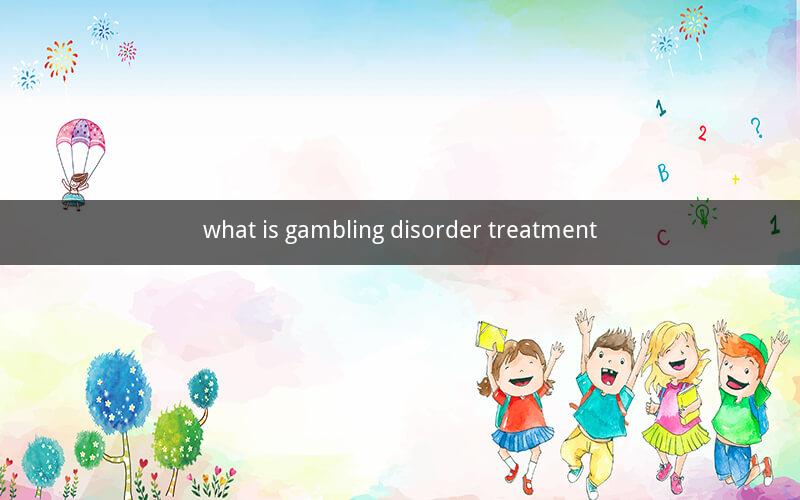
Contents
1. Introduction to Gambling Disorder
2. Understanding the Causes of Gambling Disorder
3. Symptoms and Signs of Gambling Disorder
4. Types of Treatment for Gambling Disorder
5. Cognitive Behavioral Therapy (CBT)
6. Medication for Gambling Disorder
7. Support Groups and Counseling
8. Inpatient and Outpatient Treatment Programs
9. Relapse Prevention and Long-Term Support
10. Conclusion
1. Introduction to Gambling Disorder
Gambling disorder, also known as gambling addiction, is a chronic condition characterized by an inability to control or stop gambling despite negative consequences. This disorder affects individuals of all ages, genders, and socioeconomic backgrounds. Understanding the nature of gambling disorder is crucial for developing effective treatment strategies.
2. Understanding the Causes of Gambling Disorder
The causes of gambling disorder are multifaceted, involving genetic, environmental, and psychological factors. Some individuals may have a genetic predisposition to addiction, while others may develop gambling disorder due to stress, trauma, or a desire for excitement. Additionally, exposure to gambling opportunities and cultural influences can contribute to the development of this disorder.
3. Symptoms and Signs of Gambling Disorder
Gambling disorder is characterized by several key symptoms, including:
- Preoccupation with gambling
- Needing to increase the amount of money or time spent gambling to achieve the desired excitement
- Repeated unsuccessful attempts to stop gambling
- Risking or losing significant relationships, jobs, or education due to gambling
- Feeling restless or irritable when attempting to stop gambling
- Returning to gambling after losing money in an attempt to win it back
4. Types of Treatment for Gambling Disorder
Treatment for gambling disorder typically involves a combination of approaches, including therapy, medication, and support groups. The most effective treatment plan is tailored to the individual's specific needs and circumstances.
5. Cognitive Behavioral Therapy (CBT)
Cognitive Behavioral Therapy (CBT) is a widely used treatment for gambling disorder. This therapy focuses on identifying and modifying the thoughts, feelings, and behaviors that contribute to gambling addiction. CBT helps individuals develop healthier coping mechanisms and reduce the urge to gamble.
6. Medication for Gambling Disorder
Medication may be prescribed to help manage symptoms of gambling disorder, particularly those related to impulse control. Antidepressants, mood stabilizers, and other medications may be used in some cases.
7. Support Groups and Counseling
Support groups, such as Gamblers Anonymous, provide a safe and supportive environment for individuals struggling with gambling disorder. Counseling sessions with a mental health professional can also help individuals develop strategies for overcoming addiction and managing stress.
8. Inpatient and Outpatient Treatment Programs
Inpatient treatment programs offer a structured and supportive environment for individuals with severe gambling disorder. Outpatient programs provide similar support while allowing individuals to maintain their daily responsibilities. Both types of programs offer therapy, medication, and support group participation.
9. Relapse Prevention and Long-Term Support
Relapse is a common challenge for individuals with gambling disorder. Relapse prevention strategies, such as ongoing therapy, support group participation, and healthy lifestyle choices, can help individuals maintain long-term recovery.
10. Conclusion
Gambling disorder is a complex condition that requires a comprehensive approach to treatment. By understanding the causes, symptoms, and available treatment options, individuals can take the first steps toward recovery. With the right support and resources, it is possible to overcome gambling addiction and lead a fulfilling life.
Questions and Answers
1. What is the difference between gambling and gambling disorder?
- Gambling is a recreational activity, while gambling disorder is a chronic condition characterized by an inability to control or stop gambling despite negative consequences.
2. Can anyone develop gambling disorder?
- Yes, anyone can develop gambling disorder, regardless of age, gender, or socioeconomic background.
3. Is there a cure for gambling disorder?
- There is no cure for gambling disorder, but effective treatment can help individuals manage their symptoms and maintain long-term recovery.
4. Can medication help treat gambling disorder?
- Yes, medication can be prescribed to help manage symptoms of gambling disorder, particularly those related to impulse control.
5. What is the most effective treatment for gambling disorder?
- The most effective treatment for gambling disorder is a combination of therapy, medication, and support groups tailored to the individual's needs.
6. Can I overcome gambling disorder on my own?
- While it is possible to overcome gambling disorder on your own, seeking professional help and support groups can significantly improve your chances of success.
7. How long does treatment for gambling disorder last?
- Treatment for gambling disorder can vary in duration, depending on the individual's needs and progress. Some individuals may require ongoing treatment and support for years.
8. Can stress or trauma lead to gambling disorder?
- Yes, stress, trauma, and other psychological factors can contribute to the development of gambling disorder.
9. What can I do if I think I have a gambling disorder?
- If you suspect you have a gambling disorder, seek help from a mental health professional or support group. Don't wait until the situation worsens.
10. How can I support someone with a gambling disorder?
- Support someone with a gambling disorder by being patient, understanding, and encouraging them to seek professional help. Educate yourself about the disorder to better understand the challenges they face.